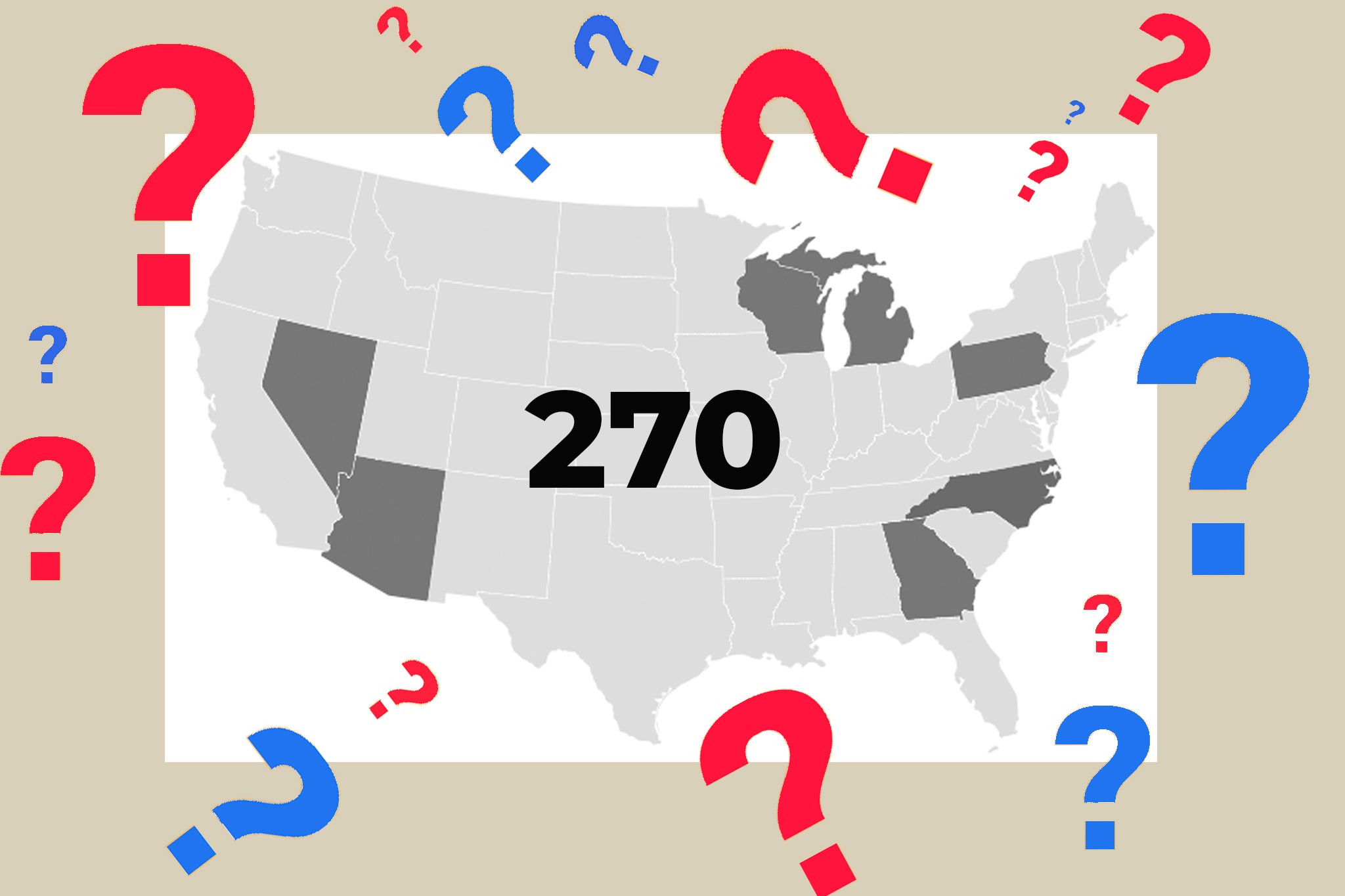These 7 swing states will decide the 2024 election. They’re all too close to call
The states hold 93 electoral college votes

Your support helps us to tell the story
From reproductive rights to climate change to Big Tech, The Independent is on the ground when the story is developing. Whether it's investigating the financials of Elon Musk's pro-Trump PAC or producing our latest documentary, 'The A Word', which shines a light on the American women fighting for reproductive rights, we know how important it is to parse out the facts from the messaging.
At such a critical moment in US history, we need reporters on the ground. Your donation allows us to keep sending journalists to speak to both sides of the story.
The Independent is trusted by Americans across the entire political spectrum. And unlike many other quality news outlets, we choose not to lock Americans out of our reporting and analysis with paywalls. We believe quality journalism should be available to everyone, paid for by those who can afford it.
Your support makes all the difference.With just one week until the election, we are no closer to knowing whether Donald Trump or Kamala Harris will be the next president of the United States.
But that question will ultimately be answered by voters in a handful of battleground states, whose 93 electoral college votes will push either candidate over the line.
In each of these seven states — Arizona, Georgia, Michigan, Nevada, North Carolina, Pennsylvania, and Wisconsin — neither Harris nor Trump has established a secure lead, with polling averages showing that the candidates are within two points of each other.
This means that nearly 100 electoral college votes are ripe for the taking, and will not be secure until next week.
According to the state-wide average of polls from FiveThirtyEight, the so-called swing states have all ended up too close to call, despite what appeared to be stronger margins a few months ago.
Though all seven hang in the balance, with average margins of under 2 percent, Wisconsin and Nevada appear to be the tightest races, with Harris and Trump just hairlines apart.
In order to win the electoral college and be elected president, either candidate must win a minimum of 270 votes out of 538.
A further 10 states, including Florida, also represent some degree of uncertainty, with one candidate 5 to 10 percent ahead of the other. Those races are certainly worth watching, despite them having a likely winner. Altogether, these ‘leaning’ states make up 123 electoral college votes.
The rest of the 33 states have an average margin of 10+ points, meaning that they are highly likely to vote for Harris or Trump. These more ‘solid’ wins account for 323 electoral college votes.
By current polling projections, Harris is poised to win 191 ‘solid’ electoral college votes, and Trump 131. When including those states that are leaning one way, this goes up to 226 for Harris, and 219 for Trump.
Under these projections (which are not definite), the candidates may need only 44 to 51 electoral college votes from swing states to secure a win.
As a result, the 93 electoral college votes that hang in the balance are crucial to deciding this election; a fact which Trump and Harris are well aware of, displayed in their frequent campaign stops.
The Harris campaign was in Michigan on Monday and will be touring all seven swing states in advance of the election. Meanwhile, Trump held a rally in Georgia Monday evening.
In addition to being split down the middle, five of these seven states have flipped twice in the past two elections; to Trump in 2016, and then back to Biden in 2020.
Nevada and North Carolina have remained Democrat and Republican respectively, but with hairline wins both times.
It is essential to note that none of the projected results are certain, though some are more likely than others. The only test of a candidate’s success is once the final ballots have been counted.
There have also been cases where a state has defied expectations, such as Indiana in 2008, which flipped for Obama after being a solid Republican state. However, this is more rare than not.
Join our commenting forum
Join thought-provoking conversations, follow other Independent readers and see their replies
Comments